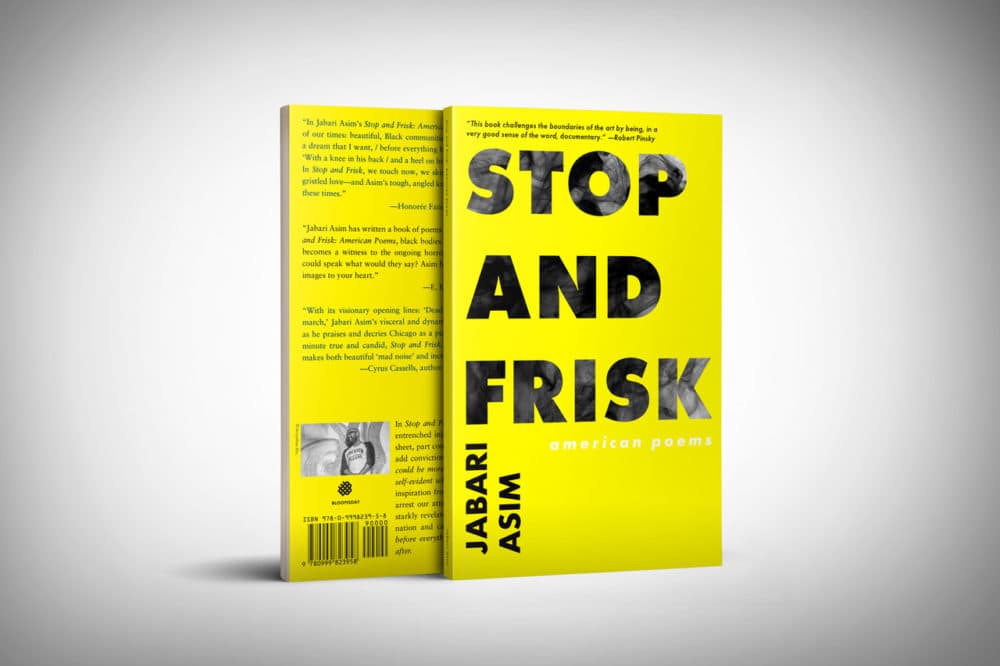Advertisement
Boston Author Uses Creative Process To Address Protests, Police Brutality Against Black People
Resume
People throughout Boston are joining the demonstrations happening around the country in response to the killing of an unarmed Black man in Minnesota, George Floyd, by police.
Meanwhile, the city's black community grapples with the fear and trauma of another high-profile police brutality case even as they push for change.
Jabari Asim is a professor of writing and publishing and the Elma Lewis Distinguished Fellow at the Social Justice Center at Emerson College. He's also written several books and poems about the Black experience in America and joined WBUR's All Things Considered to talk about police brutality and the protests here and around the country.
Here are highlights of the interview, lightly edited for clarity.
Interview Highlights
On viewing the protests through a writer's lens
Well, one of the things we always look at are eye often begin with are these lines from Mary Oliver: pay attention, be astonished, tell the world. And think about it as writers and say you have an obligation as writers. You're going to tell the world what you're seeing and feeling and hearing. And one needs to do that with utmost care.
One of the things that I write about often is what I call "narrative combat," which is essentially the clash of stories. We will look at witness testimony. We will look at our own eyewitness testimony through the video. And they will look at the counter-narrative, which is the police incident report. And I know that the historical context tells me that the police narrative tends to be the dominant one, just as police dominate on the street. And once we've done that, then we needn't hesitate to take a side if that is our impulse to say this is the version of the narrative that seems far more valid to me.
On his poem "Loosies" from his new book Stop and Frisk
"Loosies," of course, are single cigarettes. And this particular poem was inspired by a man who was attempting to get a cigarette from his car, and the police intervention that makes that impossible.
On certain street corners, a man can scare
up a cigarette for just one dollar.
Enough loosies over time can be hazardous to health,
As deadly as breaking up a fight in an intersection crowded
With witnesses or dashing through drizzle for Skittles and tea.
Risks aside, they are a staple of urban commerce
a gross domestic product that helps the underground economy go.
Picture Boy Willie and his watermelons
Bearden's bejeweled fishmongers
bartering amid a splash of paint.
But a black man in the middle
of the night knows better than
looking for loosies beyond his own driveway.
Safer instead to root around the glovebox
For that previous, planned-ahead pack.
Later he’d say it felt like a firing squad
when deputies opened up from behind, leaving him
not only smokeless but sixty years old and shot in the leg.
Suspected of stealing his own car in front of his own house,
he thought his neighbor was joking when he heard a
command to put his hands in the air.
On how he'd write about these events
My initial thoughts are to connect this particular moment in time with other moments in time that have been responses to state-sponsored brutality: the silent march against lynching that the NAACP conducted in 1917; James Meredith's March Against Fear from 1966; the march from Selma to Montgomery and the showdown on the Edmund Pettus Bridge in 1965. I'm seeing this repetition through the centuries, which makes it hard to visualize a positive and permanent outcome.
On if he expects change to come from the demonstrations
I do not. I think there's been galvanization around countless deaths that have occurred in similar circumstances. It occasionally results in legislation. But in those instances in which it has, you can't legislate good behavior. Laws cannot change hearts and minds. And I don't think it'll be any different this time.
This segment aired on June 2, 2020.

